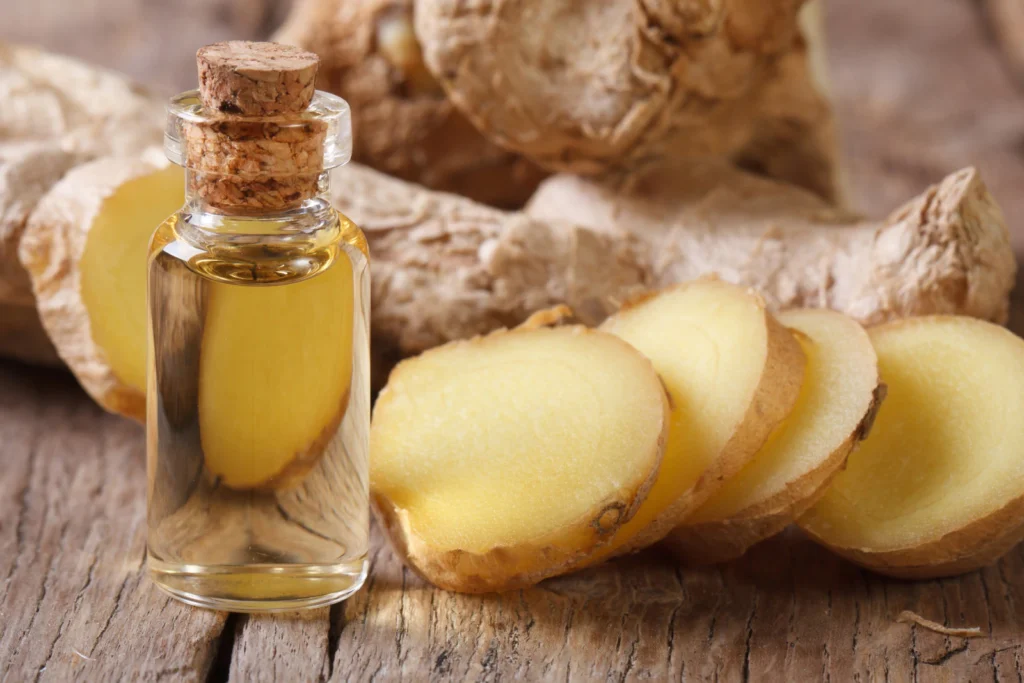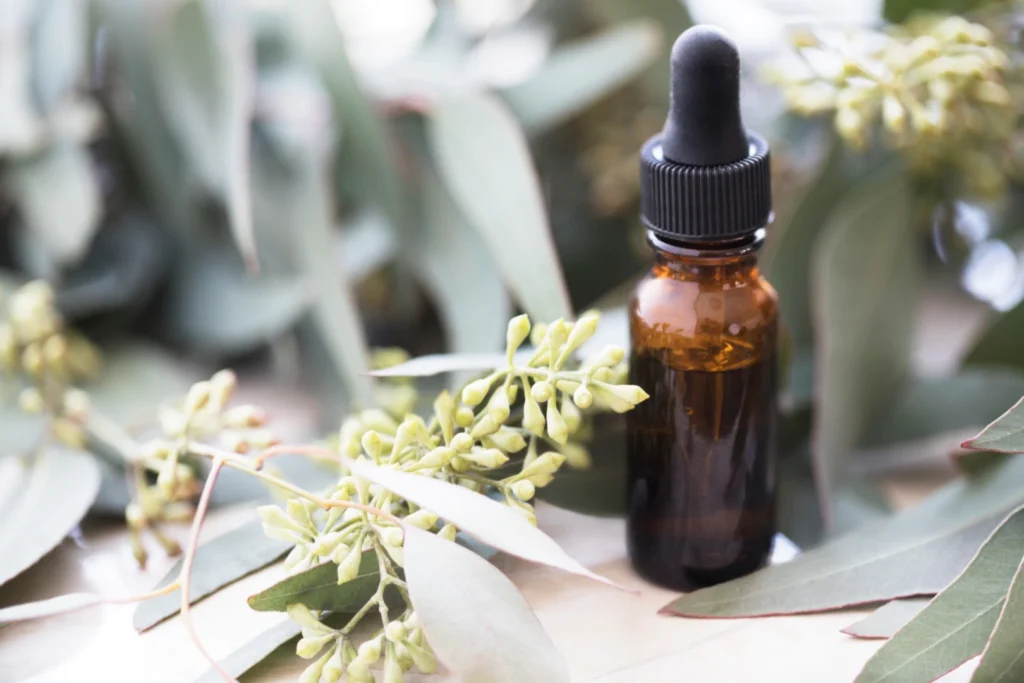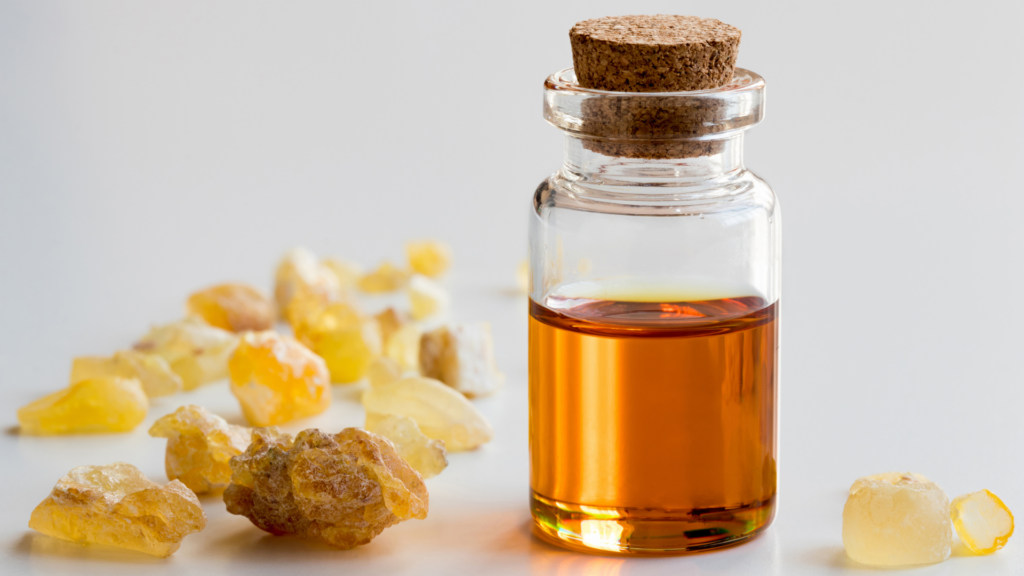One of the most common complaints among pregnant women is morning sickness, a condition that refers to vomiting and nausea that take place during the first trimester [1].
Although the condition usually occurs in the morning, it can also happen at any time during the day [2].
Nobody knows for sure what exactly causes morning sickness but some experts link it to hormonal imbalance or low blood sugar levels. These typically happen during the early stages of pregnancy [3].
Apart from this, pregnant women face other issues such as headaches, cramps, swollen feet and ankles, back pain, etc [5].
The hormone called human chorionic gonadotropin (hCG) has been found to increase rapidly during the first few months of pregnancy. Women who have higher rates of nausea and vomiting have higher levels of this hormone [4].
Certain factors have also been observed to worsen the situation, and these include emotional stress, fatigue, traveling, and certain types of food [3].
Here’s the good news, you can get immediate relief from all these symptoms with the use of essential oils. Experts claim these therapeutic oils are effective and safe to be used during pregnancy.
Let’s find out the efficacy and uses of some safe essential oils for pregnancy, plus precautionary tips.
READ MORE: Nausea After Eating: Reasons And Remedies
12 Safe Essential Oils for Pregnancy and Labour
1. Lavender Oil
When feeling stressed or burnt out, lavender oil can make you feel better. This oil helps pregnant women in various ways.
One, it relieves nausea and vomiting during the first few months, as proven in an experiment published in the Journal of Natural Sciences Research [6].
Conducted in a maternity clinic in a university hospital in Saudi Arabia, this study involved one hundred pregnant women who were 8 to 16 months pregnant, and have morning sickness [6].
The women who used essential oils such as lavender not only reported fewer episodes of nausea and vomiting but also felt more energetic and less tired [6].
Two, it helps induce good quality sleep with its hypnotic properties [7].
In a 2005 clinical trial, it was found that participants with insomnia who used lavender oil experienced significant improvement in their condition [7].
Lastly, lavender oil can effectively reduce stress, anxiety, and depression among pregnant women, which is very important as these negative emotions can hamper proper fetal growth and development [8, 9, 10].
How to use lavender oil during pregnancy:
- In a bowl, dilute 2-3 drops of lavender oil in almond oil.
- Transfer the oil mixture to a glass jar.
- Apply a small amount on the forehead for headaches, stress, or anxiety.
- Inhale the scent when feeling nauseous.
- Pour a few drops into a cotton ball, and place it near your pillow before going to bed to help you sleep more soundly.
READ MORE: 11 Health Benefits of Lavender Oil That You Should Know
2. Peppermint Oil
The oil extracted from the peppermint plant has been found to have many therapeutic purposes.
It works as an analgesic, antiseptic, carminative, decongestant, anti-ulcer and anti-inflammatory, among others [11].
With this said, it’s a good idea to have peppermint oil handy, ready to use anytime you need it. This is especially true if you’re having a baby.
During pregnancy, this essential oil is a reliable solution for morning sickness, along with lavender oil [6, 12].
Iranian researchers conducted a study participated in by 60 pregnant women who have morning sickness issues [12].
A few drops of peppermint oil were placed near the beds of half of the participants while the other half were given a placebo [12].
There was a “decreasing trend in vomiting and nausea” among the peppermint group within seven days, particularly during the fourth night [12].
Peppermint oil is also safe to use for other conditions commonly experienced by pregnant women.
It reduces skin itchiness by reducing the temperature of the skin, reports a 2012 study [13].
Those who are suffering from gastroesophageal reflux disease (GERD) can also find relief from this oil [14].
Recommended directions for using peppermint oil for pregnancy:
- Pour a drop of peppermint oil into a tissue.
- Inhale the tissue to relieve nausea and vomiting as well as heartburn.
- Or combine it with jojoba oil and apply it to itchy parts of the skin.
3. Chamomile Oil
Chamomile works as a natural tranquilizer and sedative, which is why it is great for those who are feeling anxious, depressed, or stressed out [15].
In a study conducted by American researchers, it was reported that this oil has significant anti-depressant actions [16].
Another clinical trial stated that among the 61 patients with mild to moderate cases of a generalized anxiety disorder (GAD), those who used chamomile felt much better afterward [17].
However, since no study has yet confirmed the safety of chamomile for pregnant women, it is best to consult a doctor before using this for therapeutic purposes [18].
Some suggest that long-term use of chamomile during pregnancy is possibly harmful so you must not use it longer than one or two weeks [15].
How to use chamomile oil during pregnancy:
- Use a diffuser to fill the room with the aroma of chamomile.
- Breathe in the scent.
- Do this for 15 minutes once a day for one week.
READ MORE: 14 Health Benefits of Chamomile Tea (Backed by Science)
4. Ginger Oil
Some pregnant women cannot stand the pungent aroma of garlic and onion but if you can tolerate ginger, then you can use it to relieve pregnancy-related issues like nausea.
Results of various studies confirm that ginger is a safe and effective remedy for nausea and vomiting during pregnancy [19, 20, 21, 22].
According to an Australian study, it works in the same way as vitamin B6 in relieving vomiting and dry retching [21].
Dry retching refers to the “reverse movement of the stomach and esophagus without vomiting” that is commonly triggered by choking, inhalation of bad smell, or stress.
A Follow-up investigation by another group of researchers from Australia report that there are no abnormalities in the birth weight, gestational age, and development of infants whose mothers used ginger oil extract [22].
Here’s how you may use ginger oil to relieve pregnancy symptoms:
- Pour 2 drops of ginger oil into hot water.
- Breathe in the steam.
- Repeat once a day for three to four days.
- For headache or back pain, apply two drops of ginger oil to the painful area once a day.
5. Eucalyptus Oil
Another common issue that pregnant women complain about is swollen feet. Not only is this problem unsightly, but it also brings discomfort.
But here’s the good news: you can remedy this with the use of eucalyptus oil.
Eucalyptus oil is a potent analgesic, which means that it can provide pain relief, and make it easier for you to walk and move around [23, 24].
Not only that, but it is also an anti-inflammatory agent that will tone down swelling by inhibiting the body’s inflammatory response [23, 24].
How to use eucalyptus oil for pregnancy:
- Mix 2-3 drops of eucalyptus oil with jojoba oil in a bowl.
- Keep the oil mixture in a glass jar with a lid.
- Pour a few drops on your palm.
- Massage feet with oil mixture for five to 10 minutes.
- Raise your feet up after.
- Do this remedy once or twice a day.
6. Lemon Oil
Lemon is another safe and effective remedy that can help resolve pregnancy-related issues.
In 2014, a team of researchers from Iran examined the effects of lemon inhalation in 100 pregnant women. The participants were requested to inhale lemon oil as soon as they felt nauseous [25].
Findings reveal that this oil worked much better than the placebo in controlling vomiting and retching within four days of treatment [25].
It is also considered safe to use during pregnancy [25].
This gives you peace of mind knowing that you’re not going to harm your baby when you use this remedy.
You can pour 2 drops of oil into a cotton ball and put this under the pillow before sleeping at night.
7. Frankincense Oil
Traditional healers from Iran encourage pregnant women to use frankincense oil in order to have intelligent children [26].
This was the premise behind several studies probing the effects of this oil on the learning and memory of babies [26, 27].
In a 2001 study, pregnant rats that were injected with frankincense gave birth to offspring that scored much higher in maze puzzles than those who were given a placebo [27].
Amazing, isn’t it?
Another experiment conducted in 2009, this time on human subjects, reveal that over 60 percent of the participants whose mothers were made to take frankincense during pregnancy earned high school diplomas or higher degrees [28].
How to use frankincense oil if you are pregnant:
- Add 2-3 drops of frankincense oil to warm water.
- Inhale the steam.
- Repeat procedure once a day.
READ MORE: 12 Health Benefits of Frankincense Oil + How to Use It
8. Tea Tree Oil
Used widely in Australia, tea tree oil is known for its antimicrobial and antiseptic properties [28].
Most of its biological activities are due to its main compound called terpinene-4-of [28, 29].
For pregnant women, tea tree oil can help by alleviating inflammation of the feet and ankles.
That’s because this oil is confirmed to have potent anti-inflammatory effects, as reported in several French studies [30, 31].
The topical application of diluted tea tree oil can help ease the pain of swollen feet, as well as the difficulty in walking and moving around.
9. Bergamot Oil
Pregnant women should avoid getting stressed, as this has been linked to premature birth and low birth weight among infants [32].
One way to reduce stress is with aromatherapy [32].
Bergamot, which contains linalyl acetate and linalool, has relaxation effects on pregnant women and can be used for long-term daily care [32].
It’s an efficient way of calming the mind and soothing the nerves.
It’s important to note that the use of this oil does not have any adverse effect on both the mother and the unborn baby [32].
How to use bergamot for pregnancy symptoms:
- Combine 2 drops of bergamot and 1 teaspoon of grapeseed oil.
- Rub oil mixture on palms.
- Cup your hands and smell the oil.
- Do this once a day for no longer than one week.
READ MORE: 12 Health Benefits of Bergamot Oil plus How to Use
10. Cypress Oil
Stretch marks refer to the scarring of the skin caused by dermal tearing [33].
It’s very common among pregnant women, as the skin in the belly stretches to accommodate the growing fetus inside [33].
While others don’t mind having stretch marks on their skin, some prefer to keep their skin smooth and flawless.
If you’re the latter, then it’s a good idea to use cypress oil.
The topical application of diluted Cypress oil has been found to be effective in reducing stretch marks among pregnant women [34].
11. Geranium Oil
When you’re pregnant, anything can set you off.
Even just a little noise, a smell that you don’t like, or the thought of pain during delivery can make you feel irritable, anxious, and stressed out.
Keeping it positive, and making use of anti-anxiety essential oils like geranium can help.
In a 1995 study performed by American researchers, it was found that geranium can efficiently lower anxiety levels in human subjects [35].
Rosemary oil was also tested in this study, but since it can cause premature contractions, the use of this oil is not recommended for pregnant women.
How to use geranium oil during pregnancy:
- Pour 2 drops of geranium oil and a teaspoon of almond oil into a bowl.
- Mix well.
- Pour the mixture into a glass jar with a lid.
- When you feel anxious, open the jar and inhale the scent.
- Do this only once or twice a day.
12. Sweet Orange Oil
Another way to relieve anxiety is with sweet orange oil.
Many citrus oils are considered safe to use during pregnancy, and one of these is sweet orange.
Its anxiolytic effects were evaluated in a 2012 study published in the Journal of Alternative and Complementary Medicine [36].
Results reveal that it caused sedation and tranquilization among the 40 volunteers with anxiety problems [36].
Similar findings were derived in another study, but this one was done on animal subjects [37].
Inhalation of sweet orange oil is indeed a safe and effective way to boost comfort and reduce stress among pregnant women.
Which Essential Oils to Avoid During Pregnancy
Many essential oils are deemed safe to be used during pregnancy.
However, certain oils can cause contractions, abnormal fetal development, and other problems. Avoid using clove, rosemary, basil, cinnamon, citronella, rose, juniper, sage, clary sage, jasmine, thyme, and cumin.
To be on the safe side, consult your doctor first before using any of the essential oils mentioned above.
READ NEXT: 13 Proven Homemade Pregnancy Test Ideas That You Can Try






